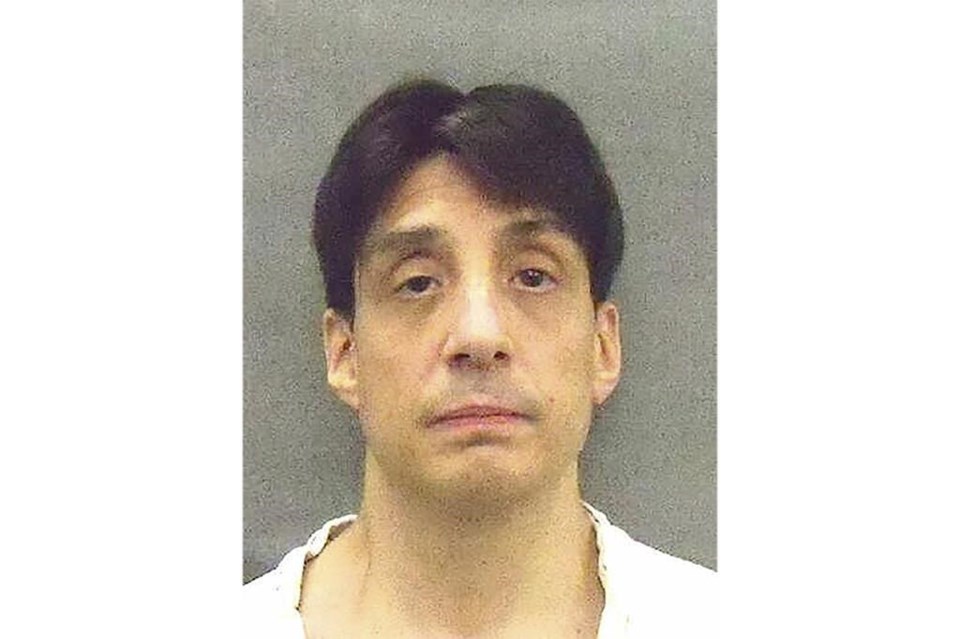HUNTSVILLE, Texas (AP) — A Texas inmate who had long claimed his conviction more than 20 years ago was based on false testimony and questionable evidence was executed Wednesday evening for fatally shooting two people, including his cousin.
Ivan Cantu received a lethal injection and was pronounced dead at 6:47 p.m. at the state penitentiary in Huntsville for the November 2000 fatal shooting of his cousin, James Mosqueda, 27, and his cousin’s girlfriend, Amy Kitchen, 22. In final words from the execution chamber, he said several times that he was innocent of the killings.
Prosecutors said Cantu killed Mosqueda, who dealt illegal drugs, and Kitchen as he tried to steal cocaine, marijuana and cash from his cousin’s north Dallas home. The 50-year-old inmate, who was convicted in 2001, had long claimed a rival drug dealer killed his cousin in a dispute over money.
Cantu’s was the first execution in Texas this year. It was one of two scheduled Wednesday in the U.S. But hours earlier, Idaho authorities halted the execution of serial killer Thomas Eugene Creech after a medical team repeatedly failed to find a vein to insert an IV line needed to administer a lethal injection. Creech was condemned for killing a fellow prisoner with a battery-filled sock in 1981.
The Texas execution proceeded hours after Cantu's attorney, Gena Bunn, said she would not be submitting a final appeal with the U.S. Supreme Court as she “couldn’t find a viable path” in which the case could be reviewed by the high court.
Two lower courts on Tuesday had denied Cantu’s request to stay his execution. The Texas Court of Criminal Appeals dismissed his petition on procedural grounds and without reviewing its merits. The 5th U.S. Circuit Court of Appeals said Cantu’s new evidence was “not credible” and “none of it undermines the critical incriminating evidence against Cantu.”
On Monday, the Texas Board of Pardons and Paroles voted 7-0 against commuting Cantu’s death sentence to a lesser penalty. Members also rejected granting a four-month reprieve.
Efforts to delay Cantu’s execution had received the support of faith leaders, celebrities such as Kim Kardashian and actor Martin Sheen, and U.S. Rep. Joaquin Castro, and his brother, former U.S. Housing Secretary Julian Castro. And three jurors from Cantu’s trial had also requested an execution delay, saying they now have doubts about the case.
Collin County District Attorney Greg Willis, whose office convicted Cantu, said that evidence presented at trial proved Cantu committed the killings. “I remain fully convinced that Ivan Cantu brutally murdered two innocent victims in 2000,” Willis said in a recent statement.
But Bunn had written in Cantu’s clemency application that new evidence “impugns the integrity of the State’s case for guilt and raises the specter that the State of Texas could execute an innocent man.”
In Cantu’s apartment, police found bloody jeans with the victims’ DNA and a key to the victims’ home. Police found Cantu’s gun at his ex-girlfriend’s home. Mosqueda’s blood was found on the gun’s barrel while Cantu’s fingerprints were found on the gun’s magazine.
In a 2005 affidavit, Matthew Goeller, one of Cantu’s trial attorneys, said Cantu admitted to him “he had indeed killed Mosqueda for ‘ripping him off’ on a drug deal” and that Kitchen was killed because she was a witness.
Cantu’s then-girlfriend, Amy Boettcher, was the prosecution’s main witness. Boettcher, who died in 2021, testified that Cantu told her he was going to kill Mosqueda and Kitchen and later took her back to the crime scene after the killings.
But Bunn alleged that Boettcher’s testimony was riddled with false statements, including about Cantu stealing Mosqueda’s Rolex watch and Cantu giving her an engagement ring he stole from Kitchen.
Bunn said new witness statements also helped confirm Cantu’s claim that a man who had supplied drugs to Mosqueda had threatened the cousin two days before the killings.
Bunn credited an independent probe by Matt Duff, a private investigator, with uncovering much of the new evidence. Duff has chronicled his findings in a podcast called “Cousins By Blood.”
Willis’ office has said in court documents “Amy Boettcher testified truthfully.”
Of the new evidence presented by Cantu, Willis’ office had said “none of it destroys the cornerstones of the State’s case.”
The next execution in Texas, which has been the nation’s busiest capital punishment state, is not scheduled until June 26. One inmate, James Harris Jr. had been scheduled for execution on March 13. But the Texas Court of Criminal Appeals last week issued a stay in his case.
___
Juan Lozano reported from Houston.
Follow Juan A. Lozano: https://twitter.com/juanlozano70
Juan A. Lozano And Michael Graczyk, The Associated Press

